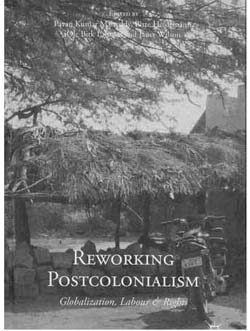Postcolonial criticism at one time was regarded as the harbinger of a new ethical framework in cultural studies, especially in the western academy. With the rise of the discourse of globalization in the 1990s postcolonial discourse appeared to lose much of its currency and critical energy, since its central issues such as colonizer/colonized, East/West and centre/margin, the cornerstones of postcolonial criticism, were no longer applicable to the global era with the blurring of national boundaries. Globalization is a transformation of the entire world system, and it affects not only the metropolitan centres of the world but also its most remote margins. On the other hand it effects a levelling out of heterogeneity or difference. Consequently, this results in a diminishing capacity of the nation-state to perform its role of representing the cultural particularity or difference that renders a people distinct from others. The discourse of globalization, of course, breaks with the earlier modernization discourse in abandoning a Eurocentric teleology of change, which in many ways has been compelled by real economic, political and cultural challenges to Eurocentrism.

Multiple Trajectories Of Globalization
Satish C. Aikant
REWORKING POSTCOLONIALISM: GLOBALIZATION, LABOUR & RIGHTS by Edited by Pavan Kumar Malreddy , Birte Heidemann, Ole Birk Laursen and Janet Wilson Palgrave Macmillan, London, 2015, 253 pp., price not mentioned.
September 2016, volume 40, No 9
